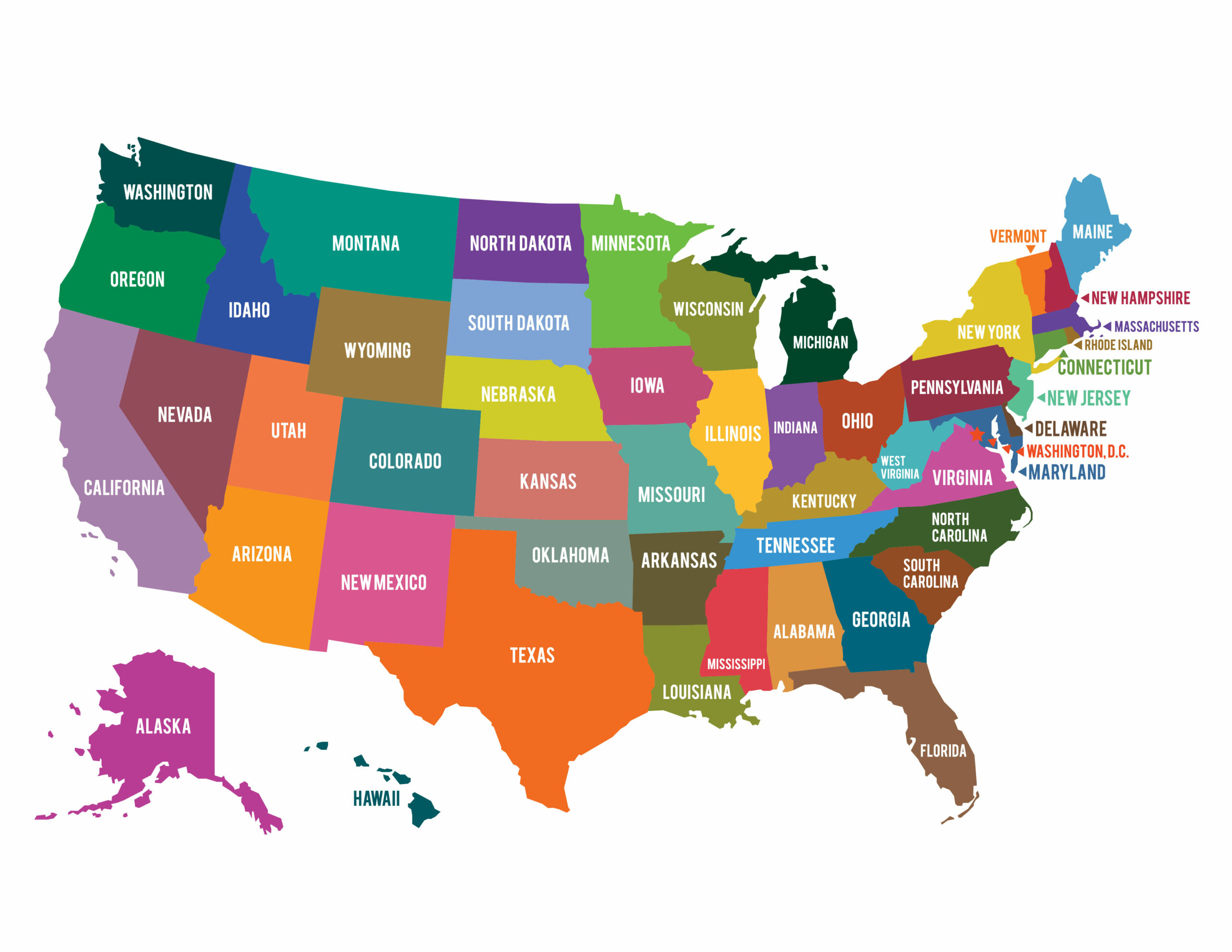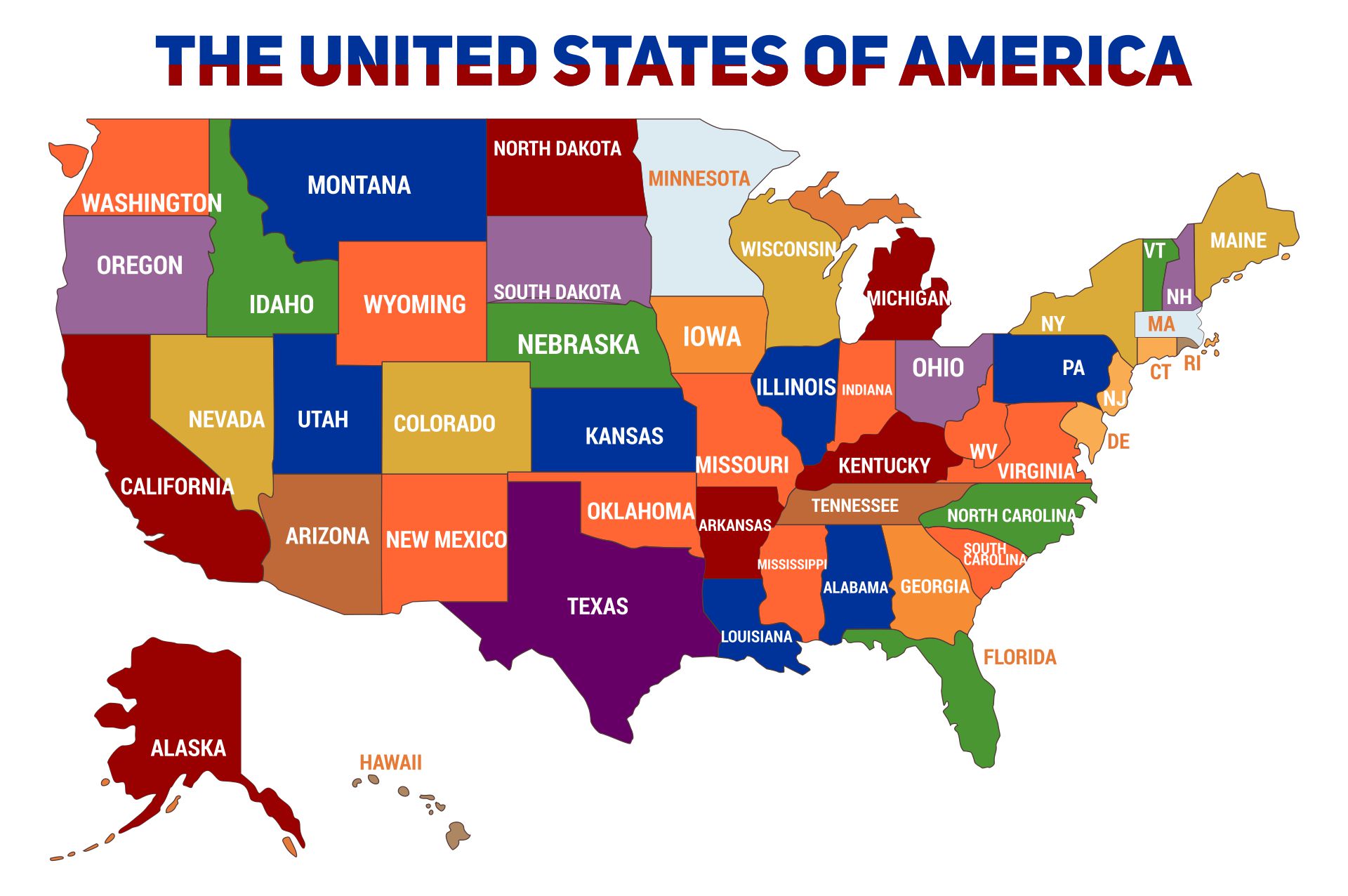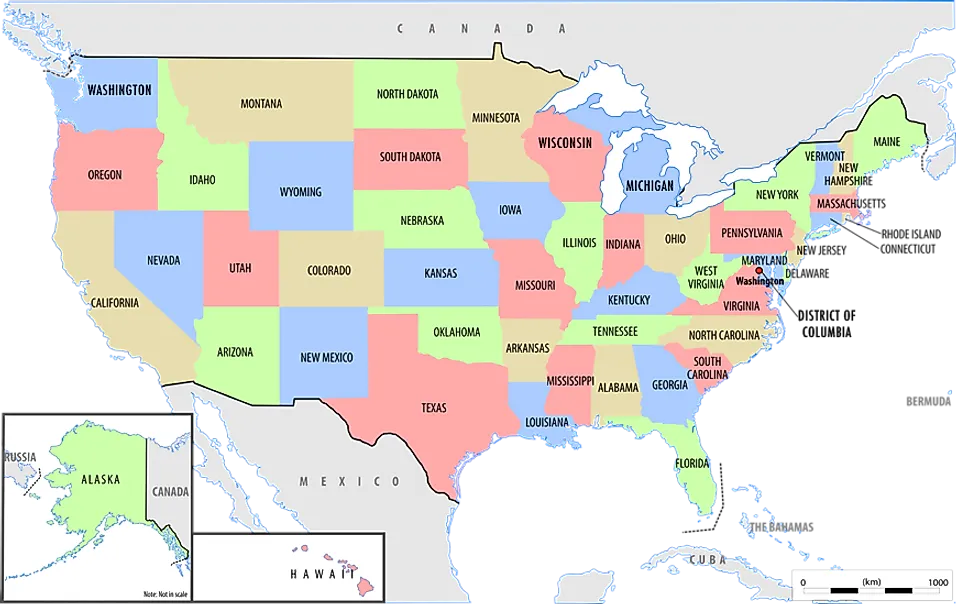Many people, it seems, have questions about marriage arrangements that involve more than just two individuals, and a common thought often pops up: are there, you know, places in the United States where having several partners at once is perfectly fine in the eyes of the law? It's a topic that comes up quite a bit, and for good reason, as it touches on how society organizes families and what is considered acceptable. The idea of multiple spouses living together, perhaps in a large family setup, is something some folks believe might be permitted in certain areas, especially when they hear stories or see portrayals in popular culture.
The truth, as a matter of fact, about this particular type of family structure within the borders of the United States is perhaps not what some might expect. When we talk about having multiple husbands or wives at the same time, which is what we call polygamy, the legal situation here is, well, pretty straightforward. You might be wondering, like, if there are specific regions or communities that have carved out their own rules on this. It's a common query, and the answer is something we can really clear up.
So, to set the record straight right from the start, and to address that very question about states that allow polygamy, it's important to understand the current legal standing. Across all of the states that make up the United States, this particular arrangement of marriage is not, in any way, shape, or form, given official approval. There isn't a single place within the country where you can legally marry more than one person simultaneously. This consistent rule, you know, applies everywhere, from the sunny coasts to the wide-open plains, and it’s a point that often gets misunderstood.
- Mixtvnow Com
- Ssh Remote Iot Raspberry Pi Example Free
- Myriam Tadjine Patreon
- Luxmovieslive
- Best Remoteiot Platform Ssh Key Raspberry Pi
Table of Contents
- What is Polygamy, Anyway?
- The Historical Path - Why No States That Allow Polygamy?
- Are There Any States That Allow Polygamy in Practice?
- The Supreme Court's View - Why No States That Allow Polygamy?
- Bigamy Versus Polygamy - What's the Difference for States That Allow Polygamy?
- Utah and the Question of States That Allow Polygamy - A Unique Case?
- The Global Perspective - Are There States That Allow Polygamy Elsewhere?
What is Polygamy, Anyway?
When we talk about polygamy, we're really just referring to the practice of having more than one spouse at the same time. It's a straightforward definition, you know, that helps us understand what we're discussing. Sometimes, this practice gets broken down further into specific types. For instance, there's polygyny, which is when one man has more than one wife at the same moment. Then there's polyandry, which is the opposite situation, where a woman has more than one husband. These are the main forms that this kind of marriage arrangement can take, and they've been around in various cultures for a long time, so.
The term itself, polygamy, actually comes from some very old Greek words, basically meaning "marriage to many spouses." It's a concept that has a long history, you know, in different parts of the world. While the core idea is about having multiple spouses, the specific ways it's carried out can vary quite a bit. It’s important to get these terms straight because, in conversation, people often use them somewhat interchangeably, but they do have distinct meanings, at the end of the day, especially when we consider the legal side of things.
The Historical Path - Why No States That Allow Polygamy?
The fact that polygamy is against the law in all states today isn't just a random decision; it has roots in some pretty old attempts to manage how families are set up. It’s a bit of history, you know, that shaped our current legal landscape. Back in the day, specifically in 1882, the Edmunds Act was put into place, making polygamy illegal in areas that were still federal territories. This was a really significant step in establishing a national stance against the practice, and it shows how far back these prohibitions go, in a way.
- Remoteiot Platform Free
- Ssh Remote Access Iot Free
- Remoteiot Cloud Chart
- Mssethi Onlyfans
- Remote Iot Vpc Ssh Download
Following that federal action, every single one of the 50 states, plus places like the District of Columbia, Guam, and Puerto Rico, also put their own laws in place to ban the practice. So, as a matter of fact, the prohibition is pretty much universal across the United States and its territories. Because these state-level laws are so widespread and clear, the federal government doesn't usually get involved in prosecuting polygamy cases directly. It's typically handled at the state level, which is something many people might not realize, you know.
This legal position, which means no states that allow polygamy, is really based on historical efforts to keep family structures a certain way and to uphold what were considered the accepted rules of society. The idea was to maintain a particular kind of order, and having one husband and one wife was seen as the standard. These efforts have really shaped the legal system we have today, and it’s a pretty deeply ingrained principle, as I was saying.
Are There Any States That Allow Polygamy in Practice?
It's interesting, because even though the law is quite clear that polygamy is illegal everywhere, there are, apparently, tens of thousands of people across North America who are involved in multiple marriages. This doesn't mean there are states that allow polygamy; it just means these arrangements are happening outside of the legal recognition system. These relationships are often social or religious in nature, not legally binding. The government, you know, will only recognize one marriage as official, even if a person has multiple partners they consider spouses.
So, while the practice itself might exist in certain communities, it doesn't have any legal standing. This means that if someone has multiple partners, only one of those relationships would be considered a legal marriage by the state. The others, while perhaps deeply meaningful to the people involved, are not recognized by the courts or for things like shared property rights, inheritance, or other legal benefits that come with a state-sanctioned marriage. It's a pretty important distinction, to be honest.
The Supreme Court's View - Why No States That Allow Polygamy?
The highest court in the land, the Supreme Court of the United States, has actually made rulings on this topic, and their decisions have consistently upheld the illegality of polygamy. They have said, quite plainly, that having multiple spouses is not something that is protected by the country's main legal document, the Constitution. This means that, according to the very top legal authority, there's no constitutional right for people to enter into polygamous marriages, which really reinforces why there are no states that allow polygamy.
This ruling is a significant piece of the legal picture, as it sets a very clear precedent for all the states. It means that even if a state wanted to, it couldn't just decide to make polygamy legal because the Supreme Court has already determined that it's not a right protected by the Constitution. So, in other words, the legal landscape is pretty firmly established on this point, and it’s a rather definitive statement from the highest judicial body.
Bigamy Versus Polygamy - What's the Difference for States That Allow Polygamy?
It's worth pointing out that when we talk about these types of marriage arrangements, two terms often come up: polygamy and bigamy. While they are related, there's a slight difference that's important in legal discussions. Polygamy, as we've discussed, is the general practice of having more than one spouse. Bigamy, on the other hand, usually refers to the specific act of entering into a marriage with someone while you are still legally married to another person. So, you know, it’s a bit more specific.
Both polygamy and bigamy are, in fact, against the law in every single state. This prohibition against bigamy is a key reason why there are no states that allow polygamy. Some places even treat bigamy as what's called a "strict liability crime." This means that, in certain areas, a person can be found guilty of a serious offense, like a felony, even if they genuinely believed they were free to marry again. It's a pretty serious legal matter, as a matter of fact, that doesn't require intent to commit a crime, just the act itself.
The laws against these practices are really about ensuring that marriage records are clear and that people aren't, you know, entering into multiple legal contracts that could create all sorts of complicated situations down the line. It's about maintaining a clear legal framework for marital relationships, and that's why these laws are so widespread and, basically, consistent across the country.
Utah and the Question of States That Allow Polygamy - A Unique Case?
Utah often comes up in conversations about polygamy, largely because of its historical connection to certain religious groups that practiced plural marriage. This practice, you know, was present in Utah even before it became a state, and it has, apparently, continued to persist in some form to this very day, despite being against the law for a long time. It’s a piece of the state's past that still sparks discussion, and it’s a good example of how historical practices can sometimes linger even when legal rules change.
While polygamy is illegal in all 50 states, Utah's law has been described as somewhat unique. It's not just about having two legal marriage licenses; in Utah, a person can be found guilty for other aspects related to plural marriage. This goes to show that while the core prohibition is the same everywhere, the specific ways states define and prosecute the practice can have slight differences. So, it's not that Utah is one of the states that allow polygamy; rather, it has a particularly detailed approach to its prohibition, you know.
Interestingly, there was a point in 1896 when Utah was, basically, faced with a choice: either join the growing United States or keep practicing plural marriage. This historical moment really highlights the tension between a particular cultural practice and the broader legal framework of the nation. More recently, Utah did take steps to "decriminalize" polygamy in a certain way, meaning that merely living in a polygamous relationship, without claiming multiple legal marriages, might be treated less harshly than before. However, it's crucial to understand that this doesn't make polygamy legal; it just adjusts the penalties for certain aspects of the practice. The government still only recognizes one marriage, and any other "marriages" are purely social or religious, which, as a matter of fact, is totally legal, just not legally recognized by the state.
The Global Perspective - Are There States That Allow Polygamy Elsewhere?
While we've been talking about the United States, it's worth noting that the legal standing of polygamy is, you know, very different in various parts of the world. The practice itself is actually quite uncommon globally. Data suggests that it's most often seen in countries where certain religions are widely practiced, particularly in Muslim-majority nations located in Africa and Asia. So, it's not just a Western concept that it's illegal; it's rare in many places.
In many of these countries where it is legal, it's typically polygyny that's permitted, meaning one man having multiple wives. This contrasts sharply with the situation in the U.S., where having spouselike relationships with more than one person under the same roof was made a crime back in 1882. So, while the question of "states that allow polygamy" in the U.S. has a clear "none" answer, the global picture is, admittedly, much more varied, and it's a very different set of cultural and legal traditions at play, basically.
- Remote Iot Platform Ssh Raspberry Pi Free
- Uncut Web Series Online
- Mixtvnow Com
- Undressher App
- Who Is Leaving Channel 15


